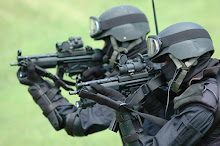Western diplomatic officials are increasingly concerned about Islamist militant activity in the east Malaysian state of Sabah on the island of Borneo. Sabah has porous and poorly policed land and maritime borders with Indonesia and the Philippines, both countries grappling with Islamist insurgencies.
Western intelligence gathering on the 750,100 km2 island of Borneo, which comprises the Malaysian states of Sabah and Sarawak, Brunei and the four Indonesian provinces of Kalimantan, has been far less extensive than in the neighbouring flashpoint areas of Indonesia, the southern Philippines and southern Thailand, a US Department of State source recently told Jane's. Without citing any specific threat or incident, the source said more resources should be channelled into gathering intelligence in Borneo, particularly in Sabah.
Sabah is close to the southern Philippine islands where the military has been struggling to put down Islamist insurgencies. Since 2001, the US has supported the effort with money and military training. The US has also offered large rewards for information leading to the arrest or killing of named militants believed to be in the region. One such militant is Dulmatin, a suspected member of the regional group Jemaah Islamiyah (JI) and a suspect in the October 2002 Bali bombings.
JI has long used Sabah as a logistical hub through which to send recruits to training camps in the southern Philippines. Former JI commander Nasir Abbas, now a police informant, confirmed to Jane's in a recent interview that he headed Camp Hudabiya on the Philippine island of Mindanao between 1994 and 1997. He described how he always went through Sabah when travelling back to peninsular Malaysia, saying he would mostly travel illegally, bribing fisherman to ferry him overnight to Sabah's coastline. Abbas said he carried a forged Philippine passport as a backup, using the Tagalog language he had picked up from his students to enhance his false identity.
http://www.janes.com/news/lawenforcement/jtsm/jtsm070423_1_n.shtml
Subscribe to:
Post Comments (Atom)



No comments:
Post a Comment